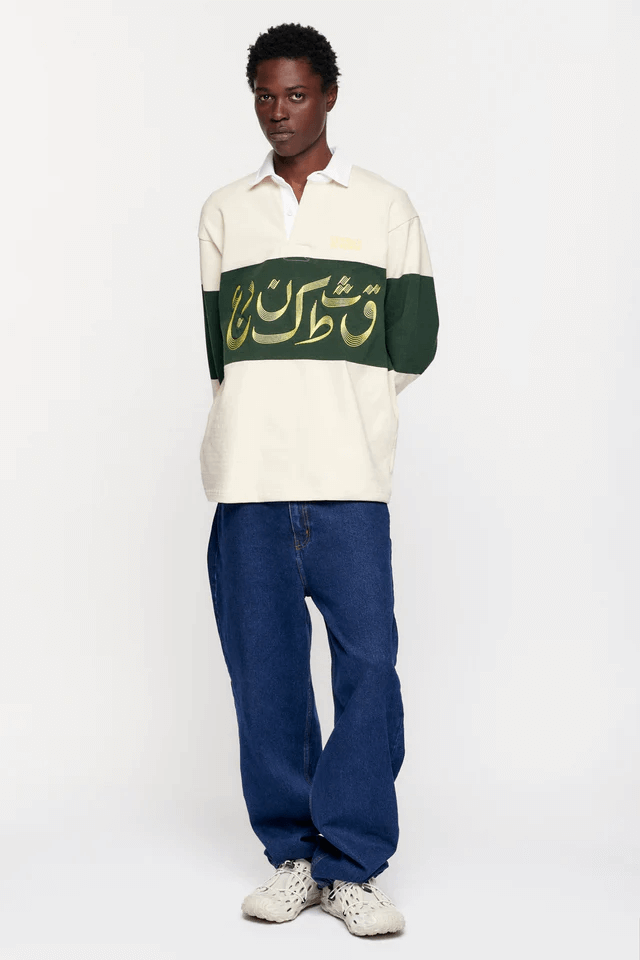
Eco-Stylist is reader-supported. If you make a purchase using our links, we may earn a commission. We only feature fashion brands that pass our sustainable brand criteria. Learn more here.
Natural fiber clothing is getting more popular lately, and it’s for good reasons. It’s favored over synthetic fiber for its better sustainability, comfort, breathability, and for health reasons.
You may be wondering, why is natural fiber so much better than synthetic? Let’s find out in this article.
Wearing natural fibers: Why natural fiber clothing is popular
A lot of people switch to natural clothing for more than the trend. There are many reasons why it’s far better than synthetic clothing, from sustainability and production to health. But first, we’re looking into the manufacturing of commercial and conventional clothes.
The mass production of conventional clothes often employs unethical processes, especially synthetic ones. These processes have been proven terrible for both the environment and workers, from employing illegal sweatshops, greenwashing, and unregulated waste management, to favoring the fast fashion market.
Moreover, commercial synthetic clothes tend to break down easily. They are heavily marketed with a lot of tactics, from employing influencers to creating a trend that would incite fear of missing out. These tactics fuel people to consume more and spend money unnecessarily on new products just to keep up.
That’s why it is important to start investing in more sustainable, healthy and ethical options. You won’t have to worry about trends, you’ll spend less money overall, and most importantly, make a better impact on the environment and clothing makers.
If you wish to learn more about sustainable fashion, read our guide. We also provide you with more guides to sustainable fashion on our website.

How beneficial are natural and organic fabric for you?
Mother Nature spoils us like no other. Now we’re going to delve deep into the benefits of natural fibers for you.
Clothing from synthetic materials often contains traces of dangerous chemicals, from formaldehyde, bleach, benzene, and many more. These can cause cancer through direct contact to people, and these chemicals often pollute water.
Unlike synthetic materials, natural fabrics like cotton, hemp, bamboo, and others use less dangerous chemicals and materials. Moreover, if they are organic materials, they will have fewer traces of heavy metals. Research suggests that natural organic materials are stronger and more breathable compared to synthetic materials.
Picking natural fabric clothing also helps you to maintain your health, especially ones that are made from organic natural fabrics. By opting for natural fabrics, you’re avoiding exposure to dangerous chemicals. The lack of chemicals also makes your clothing more comfortable and helps maintain your body heat better.
Due to these factors, natural materials feel lighter, more breathable, and softer, like silk. These factors are suitable for sensitive skin, making them better materials for babies, elderly people, and people with allergies.

Touching the air: Discover the eco-conscious option
Now, let’s get to know the environmental benefits of ditching synthetic fibers. You need to keep these in mind if you want to make more eco-friendly choices.
The production process of synthetic materials emits a lot of greenhouse gas. According to this research, synthetic materials release more greenhouse gasses compared to natural materials. A kilogram of Nylon releases 5.2 Kg of Co2 while a kilogram of polyester releases 2.8 Kg of Co2. Furthermore, they often utilize harmful, allergenic, and carcinogenic chemicals like chlorine and formaldehyde.
Natural materials pollute less and require less resources compared to synthetic fibers. Organic natural fibers like cotton use 91% less water and emit less greenhouse gas. Natural materials can also be made with natural fuels like biogas.
Moreover, natural fibers have supervising organizations and certifications to prove their sustainability and safe development, including GOTS, CTO, DNFI, Oeko TEX, and Fair Trade. Organic natural fibers have higher grounds for their safety and sustainability standards since they require a lot of certifications and testing. If you wish to learn more about organic clothing, read our guide.
By using natural materials instead of synthetic materials, you’re helping the environment. It’s less pollution, less contamination, and less water waste. Mother Nature knows what’s best indeed.

Types of natural fibers: Your pants will never be boring
Nothing is as monotonous as watching wall paint dry. There’s some good news if you hate monotony: there are many kinds of natural materials and most of them are plant-based.
Seeds fibers
Cotton is the most common natural textile and it’s the only fiber extracted from seeds. It’s the cheapest compared to other fabrics too. Organic cotton tends to be the most commonly used among all organic alternatives.
Soft plant fibers
Soft plant fibers are soft fibers extracted from plants, mostly their stems. Examples include hemp, linen, and many more. They are usually very absorbent and therefore suitable for hotter climates or weather, and also the best contender for medical use as well.
Hard plant fibers
Similar to soft plant fibers, the only difference is that the fibers are more coarse and rough. Bamboo, coconut husks, and many more are the main source of this kind of fibers. They are famous for their durability and versatility too, as hard fibers are used for other purposes beyond just fashion.
For a soft and sleek look: Blending style and practicality
If you want no more bad days of donning sweaty oversized polyester basketball jerseys for sport, then opt for natural materials. Due to the lack of chemicals and harmful substances, natural textiles tend to last long and are more resistant to alkaline, especially hard plant fibers. No more shedding tears every night just to carefully wash and iron that organic cotton shirt since natural material tends to be softer yet easier to maintain.
Moreover, for shirtmakers and tailors, natural materials are easier to create and fix. No need to impatiently wait, buy more, or do complicated stitches to repair them.
If you still worry about wearing dull and quaint natural clothing, keep reading for a list of top-notch natural clothing brands that are stylish too!
Top 12 sustainable natural fiber clothing brands for you
Fancy yourself some excellent and trustworthy natural clothing brands? Luckily for you, we handpicked not 1, not 2, but 12 premium brands that use superior quality natural fabrics just for you!
They use certified organic materials like organic cotton and hemp and have their own stories to tell from their products. You could also find rare pieces like windbreakers and yoga pants made from natural fabrics!
1) Boldwill

Boldwill will help you with all your natural fabric workout clothes. They offer you elegant sportswear made from 100% all-natural fabrics like hemp, making their apparel more breathable and stronger than their polyester counterparts.
2) Icebreaker

If you love outdoor and cold extreme sports, Icebreaker has you covered. They have been using 100% natural fabrics since 2023. You can shop for coats, sweaters, and sportswear made from natural materials like cotton and linen.
3) Kotn

Need some minimalistic but fashion-forward casual apparel? Then consider Kotn as your best friend. Kotn provides you with simple yet neatly designed clothes that are made from cotton and linen. All are sustainably and ethically sourced from Egypt. From the Nile River, with love.
4) Taylor Stitch

Well, well, if it isn’t the raddest menswear brand on the list. Taylor Stitch uses natural fabrics like hemp and comes with rad services like restitch and repair. You can learn more about Taylor Stitch in our guide.
5) 8000Kicks

Who would have thought that shoes could use natural materials too? 8000Kicks specializes in hemp-based waterproof shoes that are comfortable and durable for many purposes, from hitting the gym to strolling around sandy beaches.
6) AlterX Co.

This Los Angeles-based brand offers 60% hemp and 40% organic cotton t-shirts for 100% cool drip. What’s more, they donate 20% of their profits to help hunger, human trafficking, and other noble causes.
7) BAM Bamboo

If you’re new to bamboo clothing and curious about it, BAM Bamboo is the best brand for starters. They offer activewear and leisurewear made from bamboo fibres. Psst, their yoga pants are hot among fashionistas too, what a BAM!
8) Pact

Do you need an organic cotton dress? Pact can help you with that. Do you also need organic super absorbent kitchen towels and warm bed sheets? Pact can help you with that too. Pact can serve your needs for natural fabrics and create a greater im-Pact.
9) ZONE by Lydia

Elevate your basics with Zone by Lydia! This Australian brand fuses natural performance with minimalist style using breathable blends of organic cotton and hemp. Designed for movement and everyday ease, their women’s and unisex pieces are as comfortable as they are eco-conscious—perfect for workouts, lounging, or layering.
10) Outerknown

Fancy some cool flannels to impress your friends? Go check Outerknown. Outerknown uses 95% natural materials and they all are certified by Fair Trade too. Oh, and you can re-sell your used Outerknown clothes to them if you get bored.
11) Vustra

Stay cool on the road with Vustra. Vustra offers you posh polos, shirts, and shackets with 100% certified natural materials, including organic cotton, linen, and bamboo. Their dyes are natural yet stark.
12) Known Supply

KNOWN SUPPLY knows their game pretty well. They use GOTS-certified organic cotton and are well-trusted by both their workers and customers.
Need to know more about natural clothing brands?
Looking to try some new natural clothing brands? Then look no further than Eco-Stylist! We offer over 100 great sustainable brands with clothes and shoes that are all responsibly sourced!
From shiny shoes to stylish suits, it’s all made with people and the planet in mind. Check out our shop to get started and start making a difference with each purchase!
*Article updated 5/7/25.

Nanda is an Indonesian freelance writer, content maker, and blogger, specializing in sustainable fashion, art, music, literature, and entertainment.









